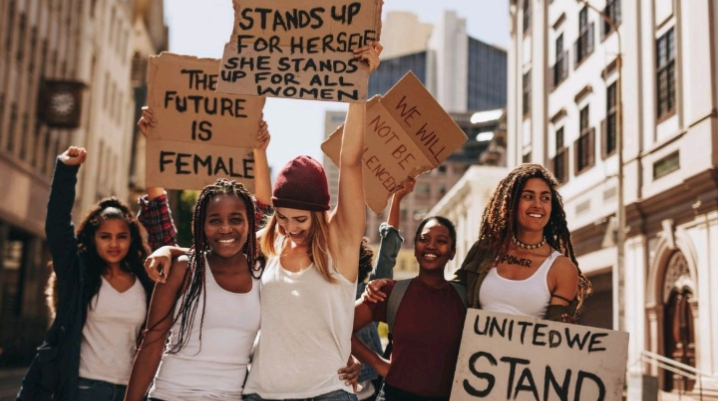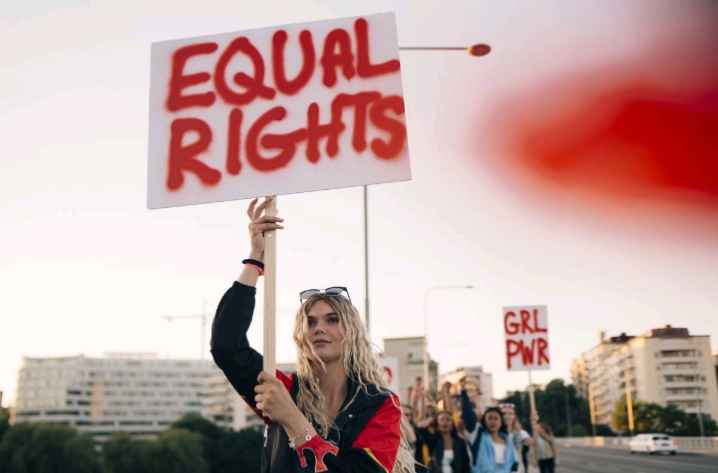Introduction
Feminism, once a focused movement for gender equality in voting rights, education, and employment, has evolved into a vast, deeply personal identity struggle—especially for Gen Z. While this evolution has led to greater inclusivity and awareness, it has also come with unintended consequences: anxiety, burnout, and emotional isolation among the very young people driving the movement.
This article explores how the shift from traditional feminism to Gen Z feminism is reshaping the mental health of young people today.
What Was Traditional Feminism?

Traditional or “classical” feminism can be broadly divided into three waves:
First Wave Feminism focused on women’s suffrage and legal rights (late 19th to early 20th century).
Second Wave Feminism emphasized workplace equality, reproductive rights, and domestic abuse awareness (1960s–1980s).
Third Wave Feminism challenged stereotypes and embraced sexual liberation and individualism (1990s–early 2000s).
Each of these movements had specific political goals, often championed through legislation, academic discourse, and public protest. The structure was clear, and the emotional burden was often externalized into institutions and policy reform.
What Is Gen Z Feminism?

Gen Z feminism, shaped by young people born from 1997 onwards, takes a more emotional, intersectional, and digital approach:
It advocates for LGBTQ+ rights, mental health awareness, disability inclusion, and the deconstruction of toxic masculinity.
The movement thrives online, especially on platforms like TikTok, X (Twitter), and Instagram, using memes, reels, and hashtags as vehicles of protest.
Rather than focusing on law or policy, Gen Z feminism is about changing culture, language, and social behavior.
While more inclusive and emotionally intelligent, this form of feminism is also deeply personal, making many young people feel like they are in a constant state of advocacy, judgment, or burnout.
Mental Health and the Weight of Advocacy
The connection between Gen Z feminism and mental health is undeniable. Here’s how the movement both uplifts and drains:
Hyper-Awareness and Anxiety: Constant exposure to trauma narratives, injustice, and online debates can lead to emotional fatigue and identity confusion.
Performative Pressure: Young activists often feel compelled to be “perfectly woke,” fearing mistakes may lead to being ostracized or “cancelled.”
Family Rejection: In many African societies, Gen Z feminists—especially queer youth—face emotional neglect or ridicule at home.
Activism Fatigue: The need to constantly explain, educate, or resist societal norms without formal support systems can lead to depression and burnout.
Masculinity Crisis: As feminism challenges old gender roles, many young men are left unsure of how to redefine themselves, creating inner turmoil and identity crises.
Key Differences at a Glance
Here’s how traditional feminism and Gen Z feminism differ—especially in how they relate to mental health:
Traditional feminism was more structured, goal-driven, and policy-focused. Gen Z feminism is fluid, emotional, and highly personalized.
Earlier feminists fought external battles—laws, institutions, voting rights. Gen Z fights internal and cultural battles—language, pronouns, microaggressions.
Traditional feminism had clear boundaries; Gen Z feminism often blurs personal life and public activism, leading to emotional overexposure.
While earlier feminists often worked offline and in communities, Gen Z does its work in public digital spaces, where scrutiny is relentless and feedback immediate.
The African Context: Silence, Stigma, and Resistance

In Nigerian and broader African cultures, feminism is often misunderstood as rebellion, while mental health struggles are dismissed as weakness or spiritual attacks. This creates a volatile environment where young people carry emotional burdens without validation.
A young feminist in Nigeria may be fighting for gender justice on Twitter while being called “disrespectful” or “possessed” at home. For queer individuals, the situation is worse, with many facing threats, blackmail, or forced conversions.
Moving Forward: Healing as Resistance

Gen Z feminism must evolve to support the emotional wellbeing of its own members. If it continues to place the burden of social change entirely on young shoulders, it will break the very people it seeks to empower.
We must now add a fourth wave to feminism—a healing wave.
FactSphere Recommendations
Introduce mental health education in Nigerian schools and universities
Create culturally safe, youth-led therapy spaces, especially for queer and female-identifying youth.
Encourage digital boundaries for young activists, to prevent burnout and overexposure.
Develop community mentorship programs linking experienced feminists with young advocates.
Train families and educators to understand feminism and mental health from a Gen Z perspective.
Conclusion
Feminism should not only confront oppression—it should also protect the minds of those who confront it.
In the pursuit of justice, we must remember: the movement is only as strong as the people who carry it.


